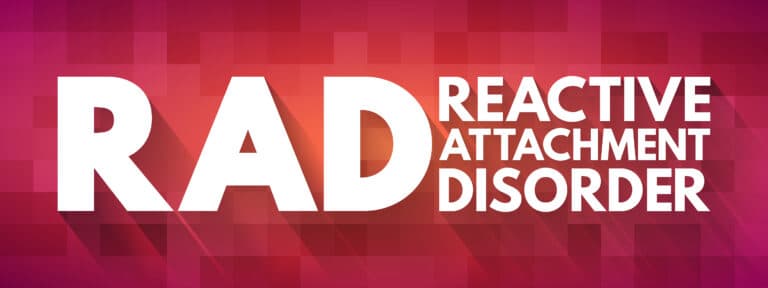
Understanding anorexia and its accompanying signs and behaviors will help you identify if you or a loved one need help and support out of such destructive habits.
This blog will examine the following questions:
- What is anorexia nervosa?
- What causes anorexia nervosa?
- What are the complications of anorexia nervosa?
- What are the symptoms of anorexia nervosa?
- How is anorexia nervosa diagnosed?
- How is anorexia nervosa treated?
- Can anorexia nervosa be prevented?
What is Anorexia Nervosa?
Anorexia nervosa is an eating disorder often referred to simply as anorexia. It’s characterized by an intense fear of gaining weight and body dysmorphia. Individuals with anorexia tend to have a low BMI and poor eating habits, often resulting in restrictive diets or an aversion to eating altogether.
Anorexic individuals can also exhibit the behaviors of other eating disorders, such as bulimia, where one will participate in binge eating, self-induced vomiting, or abusing laxatives.
What Causes Anorexia Nervosa?
The exact cause of anorexia is unknown. Typically, there are multiple contributing factors in individuals who develop this disorder. The most recognized causes include biological, environmental, and psychological.
- Biological. Some research suggests that genetics can be passed down through generations and make specific individuals more susceptible to developing an eating disorder. Genetic traits such as perfectionism and pessimism.
- Environmental. Being surrounded by a culture, family members, or social groups that encourage poor self-image and eating habits can influence an individual’s view of themselves and societal expectations. Often, a person may feel they need to be thinner to fit in or feel peer pressure to participate in risky behaviors such as restrictive dieting and purging.
- Psychological. Like genetic risk factors, individuals may have certain personality traits that make them more susceptible to anorexia. Low self-esteem and insecurity caused by numerous things (bullying, family pressure, societal expectations, etc.) can lead to distorted body image.
Regardless of why a person develops anorexia, the disorder leads to serious risks that should be taken seriously.
What are the Complications of Anorexia Nervosa?

Addressing an eating disorder early on is crucial to avoid developing physical and mental complications. In more severe cases, anorexia can lead to long-term health problems that impact the rest of a person’s life.
Physical Complications
- Anemia
- Heart problems
- Osteoporosis
- Muscle loss
- Absence of period
- Decrease in testosterone levels
- Kidney problems
- Constipation
- Bloating
- Nausea and vomiting
- Abnormally low blood pressure (hypertension)
Mental Complications
- Irritability
- Sleep problems, insomnia
- Concentration problems
- Depression
- Anxiety
- Personality disorders (e.g., borderline personality disorder (BPD), avoidant personality disorder)
- Substance abuse
- Obsessive-compulsive disorder (OCD)
- Suicidal thoughts and tendencies
- Self-harm (e.g., cutting, burning, scratching, etc.)
- Loss of sex drive
The effects of anorexia on an individual will vary. What one person experiences due to the disorder can significantly differ from another. What’s important is to recognize the behaviors and practices of a person with anorexia and intervene before worse problems arise.
What are the Symptoms of Anorexia Nervosa?
If you suspect a loved one is struggling with an eating disorder, reach out to support them and encourage them to get help. Be aware of and look for the emotional, behavioral, and physical signs and symptoms of anorexia.
Emotional and Behavioral Signs
- Social withdrawal
- Obsession with self-image and appearance
- Obsession with food, losing weight, and calories
- Intense pickiness with the type of food they eat
- Vocalizing physical insecurities and low self-esteem
- Irritability and aggressiveness
- Depression
- Anxiety
- Skipping meals, refusing to eat
- Abusing substances (prescription drugs, alcohol, laxatives, etc.)
- Exercising excessively
- Loss of sex drive
Physical Signs
- Sudden or dramatic weight loss
- Self-harm (cuts, burns, scratches on the skin, unexplained bruises, etc.)
- Frequent sickness
- Being constantly cold
- Dizziness and weakness
- Irregular periods
- Hair loss
- Frequently staying home from work or school
- Loss of muscle mass
- Wearing baggy clothing to hide body
How is Anorexia Nervosa Diagnosed?

A proper anorexia diagnosis follows the guidelines of the American Psychiatric Association’s Diagnostic and Statistic Manual of Mental Disorders (DSM-5). A person must meet all three criteria, a combination of physical, psychological, and behavioral traits.
- A restriction of caloric intake that leads to a significantly low BMI based on age, sex, and where an individual should be in physical and mental development.
- An intense fear of gaining weight or “becoming fat” despite being underweight.
- Inability to recognize the seriousness of current low body weight and denial of a problem (body image disturbances).
A healthcare professional will look at an individual to see if they meet all three traits above. If so, they’ll meet the criteria for an anorexia nervosa diagnosis and be directed to treatment resources.
How is Anorexia Nervosa Treated?
Post-diagnosis, a person with anorexia can look into various treatment options. They may take part in different therapies, receive prescription medication, or be hospitalized in more severe cases.
- Therapies. Therapy can benefit an individual’s mental state as they improve their condition. Various therapies, including nutritional therapy, can be utilized, where a meal plan is made and monitored to allow for healthy weight gain. Individual or family therapy can target root problems contributing to the disorder.
- Medication. There’s no official medication approved for anorexia, but a psychiatrist may recommend specific prescriptions to target the underlying causes of anorexia or the symptoms caused by the disorder. For example, they may prescribe medications that work to improve mental health problems like depression and anxiety that contribute to poor self-image.
- Hospitalization. If an anorexia case is deemed severe or life-threatening, a person may need to be hospitalized. Hospitalization ensures they receive treatment for medical complications, have the proper nutrition, and don’t participate in harmful behavior.
Can Anorexia Nervosa Be Prevented?
A lot of factors can play a role in developing anorexia. Because of this, there’s no surefire way to prevent the disorder. Because a person’s mental well-being and environment can contribute to anorexia, there are healthy habits a person or family can practice to reduce their risk of anorexia, including the following:
- Encouraging exercise and healthy eating
- Building up loved ones’ self-esteem
- Avoiding restrictive dieting
- Discouraging risky substance use (limiting alcohol, following medicine dose directions, avoiding drug abuse)
- Encouraging therapy, medication, and openness to mental health
- Focusing on building character rather than obsessing over appearance
- Practicing kindness, understanding, and patience
Eating disorders tend to develop due to dissatisfaction with a person’s current state of being for various reasons. A judgment-free environment that focuses on healthy behavior over appearance is key to a positive self-image.






